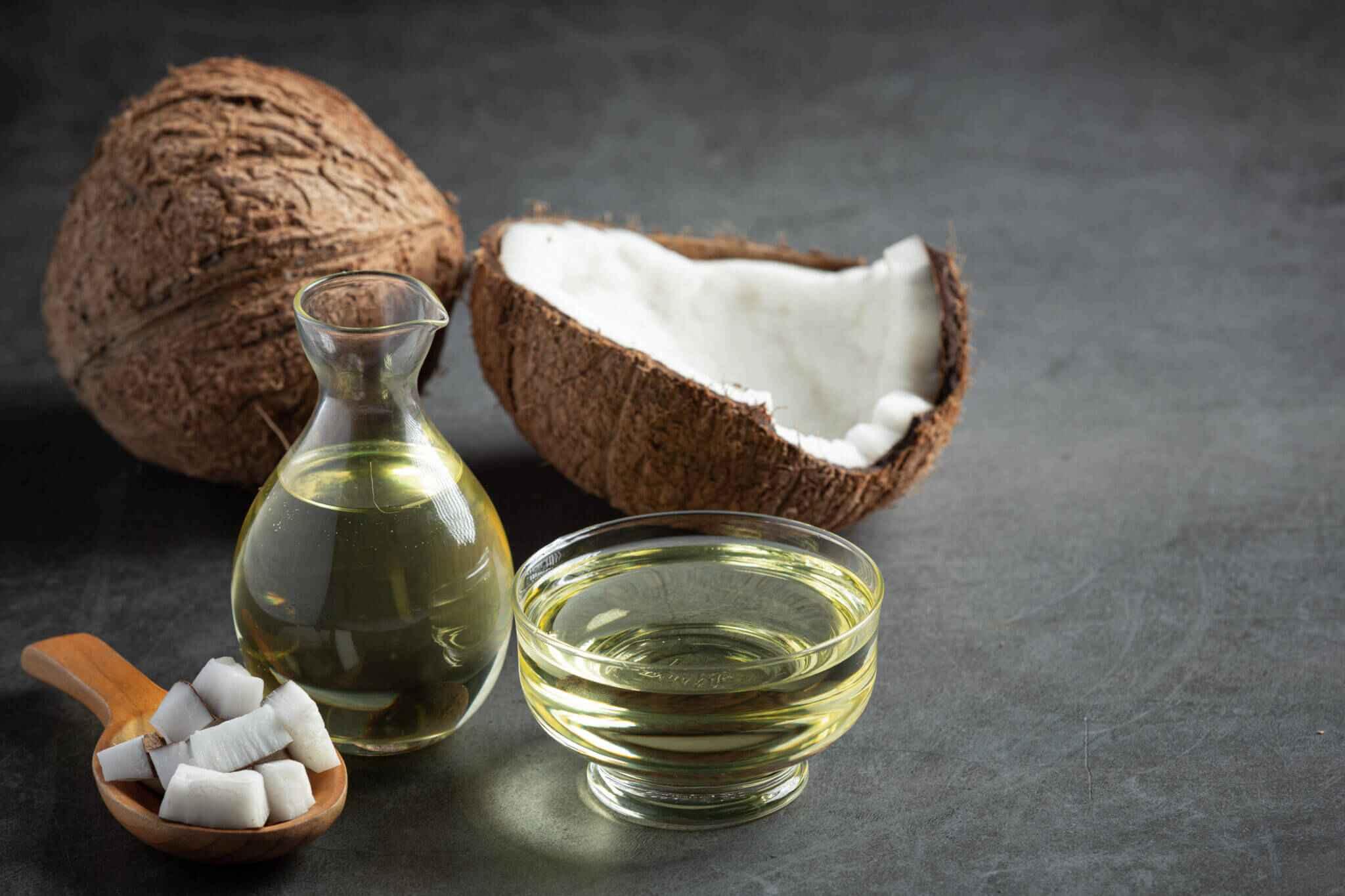Coconut Oil for Hair Clippers: The Natural Lubricant You Can Trust

Caring for hair clippers is essential for barbers, stylists, and anyone who cuts hair at home. Most people rely on synthetic clipper oils to keep their blades sharp and rust-free, but an increasing number are turning to coconut oil as a natural alternative. Using coconut oil for hair clippers provides lubrication, reduces friction, and can even extend the lifespan of your grooming tools. Since it is non-toxic, affordable, and widely available, many consider it a healthier choice for both clippers and skin.
Why Lubrication is Crucial for Clippers
Hair clipper blades move at high speed and generate friction. Without proper lubrication, the blades can overheat, dull quickly, and even pull or snag hair. Applying oil reduces resistance, keeps the cutting motion smooth, and prevents unnecessary wear. Whether you’re a professional barber or just trimming at home, clipper maintenance with the right oil ensures consistent performance. Coconut oil has gained attention because it delivers the same benefits as synthetic oils while offering natural advantages.
The Benefits of Using Coconut Oil on Hair Clippers
Coconut oil is packed with unique properties that make it an effective lubricant for clippers. It is lightweight, penetrates easily into small spaces, and reduces blade friction. Unlike some mineral oils, coconut oil also has antibacterial and antifungal qualities, which help keep clippers hygienic. Another benefit is that it is skin-friendly, meaning it won’t cause irritation if small traces come into contact with the scalp or face. Many users also report that coconut oil keeps their clipper blades cooler for longer compared to traditional oils.
Coconut Oil vs Clipper Oil: What’s the Difference?
Traditional clipper oils are usually made from mineral oil or synthetic lubricants. These oils work well but may contain chemicals that are not skin-friendly. Coconut oil, on the other hand, is plant-based and natural. It provides similar lubrication but without harmful additives. The main difference is viscosity—coconut oil can be slightly thicker than standard clipper oil, so it needs to be applied carefully in thin layers. Still, for most users, the trade-off is worth it because of the natural and skin-safe benefits.
Is Coconut Oil Safe for Clippers?
Yes, coconut oil is safe for hair clippers when used correctly. Since it is stable at room temperature, it doesn’t break down as quickly as some plant oils. However, you should always apply a light coat rather than overloading the blades. Too much oil can attract dust, hair, and debris, which may clog the clipper mechanism. Proper application ensures that your blades stay sharp, clean, and rust-free.
How to Apply Coconut Oil to Hair Clippers
To use coconut oil on clippers, start by cleaning the blades thoroughly. Remove hair and debris using a small brush or compressed air. Next, apply a tiny drop of melted coconut oil along the moving blade. Turn on the clippers for a few seconds so the oil spreads evenly across the blades. Wipe away any excess with a clean cloth to prevent buildup. Regular application after every few uses will keep the blades performing at their best.
Preventing Rust with Coconut Oil
One of the biggest threats to clipper blades is rust. Moisture from hair or cleaning solutions can cause blades to corrode over time. Coconut oil acts as a protective barrier against oxidation, helping to prevent rust formation. Since it coats the blade surface evenly, it blocks air and water from reaching the metal. This makes coconut oil not just a lubricant but also a preservative for your clippers.
Coconut Oil for Blade Cooling
Overheating is a common problem during long haircut sessions. Blades that get too hot can cause discomfort for clients and lead to faster wear. Coconut oil helps reduce friction, which in turn lowers blade temperature. Some barbers find that using coconut oil keeps their clippers running cooler for longer compared to synthetic oils. This is especially helpful for high-speed professional clippers that heat up quickly.
Natural Antibacterial Protection with Coconut Oil
Apart from lubrication, coconut oil has antibacterial and antifungal properties. This makes it particularly useful for grooming tools that come into contact with skin and hair. A thin layer of coconut oil can help reduce the risk of bacterial buildup, promoting hygiene in barbershops and at-home grooming routines. Combined with regular cleaning and disinfecting, coconut oil adds an extra layer of protection for both clippers and clients.
Can You Use Solid Coconut Oil on Clippers?
Coconut oil is solid at cooler temperatures and liquid in warmer climates. If your coconut oil is solid, you can simply warm it slightly until it melts. Always apply liquid coconut oil for better blade coverage. Using solid chunks may cause uneven lubrication and excess buildup. Keeping a small bottle of melted coconut oil on hand is the easiest way to ensure smooth and consistent application.
How Often Should You Oil Clippers with Coconut Oil?
For best results, clippers should be oiled before or after every haircut. If you are a barber using clippers all day, applying coconut oil multiple times a day may be necessary. At-home users can apply oil after every two to three uses. The frequency depends on how often the clippers are used and the hair type being cut. Regular oiling ensures maximum performance and blade longevity.
Common Mistakes When Using Coconut Oil on Clippers
One common mistake is applying too much oil. Excess coconut oil can drip into the motor, causing clogs or slowing performance. Another mistake is skipping cleaning before oiling. If you don’t remove hair and dirt first, the oil will only trap debris, leading to dull blades. Some users also forget to wipe away excess after oiling, which makes clippers greasy. To avoid these mistakes, apply only a small drop and always maintain a clean clipper.
Coconut Oil for Different Clipper Brands
Whether you use Wahl, Andis, Oster, or Babyliss clippers, coconut oil works effectively across all major brands. Professional barbers have reported good results with high-performance clippers, while home users also find it suitable for smaller trimmers. The key is proper application. Since blade designs vary slightly between brands, adjusting the amount of oil used will ensure smooth operation without over-lubrication.
Coconut Oil for Hair Trimmers and Beard Clippers
Coconut oil is not limited to full-size hair clippers. It works equally well for beard trimmers, detailers, and personal grooming machines. Because it is safe for skin, it can also protect against irritation when trimming sensitive areas like the neckline or beard. Applying a small amount to beard trimmer blades keeps them sharp, smooth, and hygienic. This makes coconut oil a versatile maintenance solution for all grooming tools.
Can Coconut Oil Replace Clipper Oil Completely?
For many users, coconut oil is a complete replacement for traditional clipper oil. However, professional barbers who require heavy-duty lubrication may still prefer synthetic oils for high-frequency use. Coconut oil works best for general home grooming and light professional use. If you want an all-natural option that also benefits skin health, coconut oil is an excellent choice. For maximum results, some barbers use coconut oil alongside traditional oils depending on the situation.
Storing Clippers After Oiling with Coconut Oil
After applying coconut oil, store clippers in a dry, dust-free place. Keeping them covered prevents debris from sticking to the oiled blades. If you won’t be using your clippers for a while, applying a thin protective layer of coconut oil before storage helps prevent rust. For long-term storage, always clean thoroughly and reapply fresh oil before the next use.
The Cost-Effective Advantage of Coconut Oil
Another reason many people choose coconut oil is affordability. A small jar of coconut oil can last months, making it far cheaper than constantly buying clipper oil bottles. Since coconut oil also has multiple uses—such as cooking, skincare, and beard conditioning—it provides extra value beyond clipper maintenance. This makes it one of the most cost-effective solutions for grooming tool care.
Conclusion: Is Coconut Oil Worth Using on Clippers?
Coconut oil has proven itself as a reliable, safe, and affordable option for clipper maintenance. It lubricates blades, reduces friction, prevents rust, and offers antibacterial protection. While it may not always replace professional-grade clipper oil for heavy use, it is more than effective for home grooming and light barbering. If you want a natural, skin-safe, and budget-friendly alternative, coconut oil for hair clippers is a smart choice.







